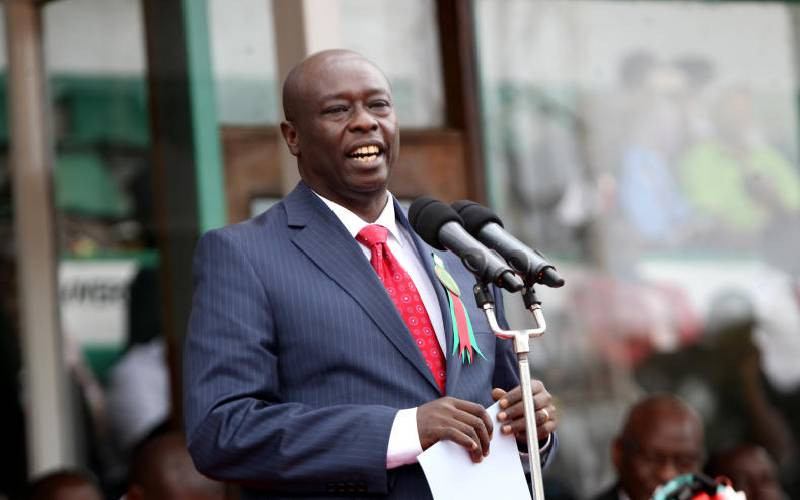According to the Constitution of Kenya, the Deputy President can be impeached. The process for impeaching the Deputy President is outlined in Articles 150 and 151. Here is an overview of the procedure, including relevant quotes from the Constitution:
1. Motion of Impeachment
A motion for the impeachment of the Deputy President can be initiated by a member of the National Assembly.
Article 150(1) of the Constitution states, “A member of the National Assembly may move a motion for the impeachment of the Deputy President on the ground of a gross violation of a provision of this Constitution or of any other law.”
2. Notice of Motion
The member initiating the motion must give at least fourteen days’ notice to the Speaker of the National Assembly, stating the grounds for impeachment.
The Speaker shall then inform the Deputy President and the Speaker of the Senate of the notice. This is specified in Article 150(2) of the Constitution.
3. Formation of Special Committee
Upon receiving the notice, the Speaker of the National Assembly shall convene a special committee to investigate the allegations.
This committee, known as the “Special Committee on the Removal of the Deputy President,” is composed of eleven members as specified in Article 150(3) of the Constitution.
4. Investigation and Report
The Special Committee conducts a thorough investigation into the allegations and presents its findings to the National Assembly.
MUST READ: PROCEDURE TO IMPEACH PRESIDENT IN KENYA
Article 150(4) of the Constitution states, “If the special committee reports that the particulars of any allegation against the Deputy President have been substantiated, the National Assembly may proceed with the motion under subsection (5).”
5. Debate and Voting
The National Assembly debates the motion for impeachment. According to Article 150(5), “Within seven days after receiving the report, the National Assembly may vote on the motion, and if supported by at least two-thirds of all the members, the motion is passed.”
6. Referral to the Senate
If the motion is passed by the National Assembly, it is then referred to the Senate for a hearing. The Senate considers the charges brought against the Deputy President and makes a decision.
Article 151(1) of the Constitution states, “If the National Assembly passes a motion for the impeachment of the Deputy President, the Speaker of the National Assembly shall send a copy of the motion to the Speaker of the Senate.”
7. Removal from Office
If the Senate approves the motion by at least two-thirds of its members, the Deputy President Be impeached shall cease to hold office.
Article 151(2) of the Constitution states, “If the Senate approves the motion, the Deputy President shall cease to hold office.”
Similar to the President, the Deputy President has the right to appeal to the Supreme Court if he or she believes that the impeachment process was not conducted in accordance with the Constitution, as outlined in Article 151(4).
Please note that the Constitution of Kenya is subject to amendments, and it is advisable to refer to the most up-to-date version or consult legal experts for precise and current information on the impeachment process for the Deputy President.


Drop Your Comments, What do you think About The Article?